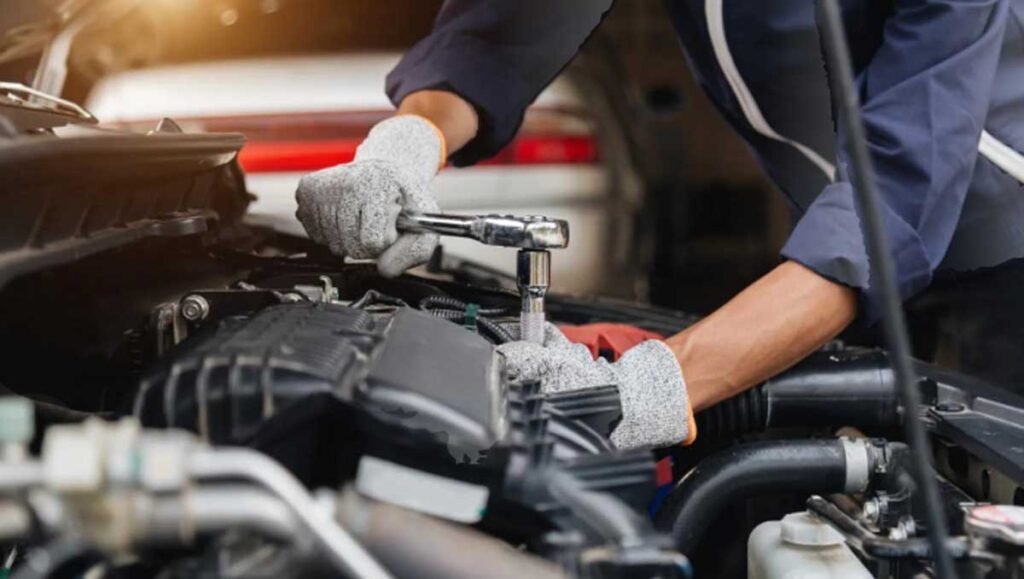How to Keep Your Grandparents Safe Without Hovering Over Them

It’s totally normal to worry about grandparents. They’ve taken care of others for most of their lives, and now they’re the ones who need help. But that doesn’t mean you need to watch them every second or make them feel like they’ve lost all their freedom. There are smart, simple ways to keep them safe without following them around or making them feel uncomfortable.
Keeping older adults safe is all about giving them the right tools, creating a safe space, and being ready if something goes wrong. The good news is, most of these things can be done without being in their face all the time.
Give Them Tools That Help Without Taking Over
One of the best ways to protect older family members is by using tools that actually work but don’t take over their daily lives. A great example of that is alarms for seniors. These small devices can be worn on the wrist or around the neck, and they connect to help fast if there’s a fall, a medical problem, or anything that makes them feel unsafe.
What makes them smart is how simple they are. Just one button can send a signal to a support center or emergency services. That means your grandparent doesn’t have to find a phone or wait for someone to notice something’s wrong. And they don’t have to deal with confusing apps or screens, which can be stressful.
Alarms like these let seniors live on their own terms while still having backup if they ever need it. That kind of peace of mind matters—for them and everyone who cares about them.
Make Their Home Safer (Without Going Overboard)
No one wants their home to feel like a hospital, but small changes can make a huge difference. Most accidents at home happen because of falls, and many of those falls can be prevented by fixing simple things.
Start with the floor. Loose rugs and clutter are easy to trip on, so keep walkways clear. Add non-slip mats where the floor gets wet, like in the bathroom or kitchen. Grab bars near the toilet and in the shower are super helpful too.
Lighting is another big deal. As people get older, it’s harder for them to see clearly in the dark. Nightlights in the hallway, bedroom, and bathroom help a lot if they get up at night.
You don’t need to change everything—just focus on areas where accidents are most likely to happen.
Help Them Learn New Tools (Then Let Them Use Them)
Even the best device is useless if the person doesn’t know how to use it. If you give your grandparent something like a personal alarm or even a new phone, take the time to walk through it with them.
Don’t talk down to them or take over. Let them press the buttons and ask questions. Most older adults are totally capable—they just want things explained clearly.
Once they get it, let them handle it. Constantly checking or re-explaining can make them feel like you don’t trust them. The goal is for them to feel confident, not watched.
Keep in Touch Without Overdoing It
It’s nice to check in, but calling every hour can feel annoying or stressful. One or two calls a day is enough if everything’s going fine. Even better, make it part of a routine—like a quick chat in the morning or before dinner.
Video calls are great too. They don’t have to be long, just enough to see a smile or share a story. It helps your grandparents feel connected without being overwhelmed.
Some families also use group chats to stay in touch. Sharing a photo, sending a reminder, or just saying good morning goes a long way without needing a full conversation.
Don’t Try to Do It All Alone
Even if you’re the main person looking out for your grandparents, you shouldn’t be the only one. Get a small team together—this can be family, close neighbors, or trusted friends. That way, if you’re busy or out of town, there’s someone else who can step in.
Some neighborhoods even have community programs that help seniors with things like groceries or rides to appointments. And if your family can afford it, there are professionals who check in regularly just to make sure everything’s okay.
The point is, safety doesn’t have to fall on one person. Sharing the responsibility makes it easier on everyone.
Give Them Space While Still Being There
It’s hard not to worry, especially when someone’s getting older or has health problems. But hovering or checking constantly can actually make things worse. It can feel controlling or make your grandparent feel like they’ve lost their independence.
That’s why using simple tools, smart planning, and trust is so important. When a person knows they have support—but still gets to make their own choices—they’re more likely to ask for help when they need it.
You don’t need to be there every second. You just need to make sure the right things are in place when you can’t be.
Watch for Signs That They Might Need More Help
Even with all the safety tools and check-ins, it’s good to pay attention to changes. If your grandparent seems more confused than usual, forgets to eat, or stops doing things they used to enjoy, those might be signs that something’s not right.
Don’t ignore it. Ask how they’re doing or bring it up with another family member. Sometimes it’s nothing, but other times it means it’s time to add a little more help.
Quick Recap
Keeping your grandparents safe doesn’t mean you have to watch over them every second. It’s about giving them what they need to live safely on their own: tools they can use, a home that’s easier to move around in, and people they can count on.
It’s possible to care for them without crowding them. When you trust them, they’ll trust you back—and that’s what makes everyone feel better in the long run.





